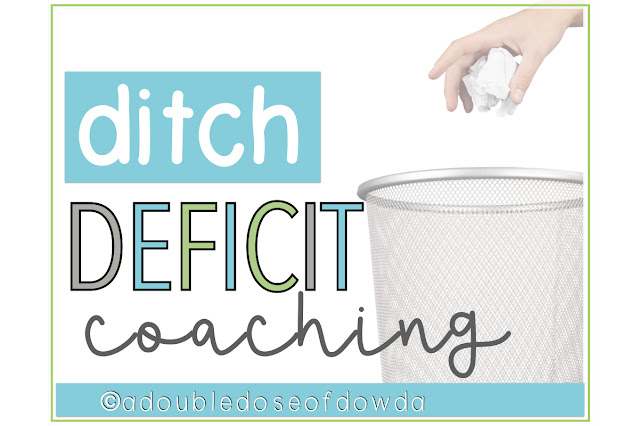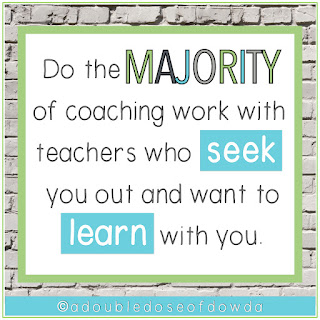Instructional coaches commonly coach from a deficit model - meaning they work with teachers who are struggling.
In this post, I discuss a strategy I use to encourage teachers to use instructional coaches by flipping the deficit model on its head. This is a great strategy for instructional coaches to use with teachers!What to look for in this post:
- Seeking teachers who want to learn
- Building your reputation as an effective instructional coach
[0:24] Seeking teachers who want to learn
I don’t believe we should coach from a deficit model. In my work, I am fortunate enough to work with teachers as requested. Often, this means I get to work with the high flying teachers. I do not work with teachers who do not want to work with me. High flying teachers are the ones who tend to seek me out. They keep me the busiest, because they want to learn.[1:09] Building your reputation as an effective instructional coach
When I share that information with teachers, they agree that that makes sense. They want to be seen as high flying teachers as well, and they are more likely to come to you with questions. You want to make sure you do not have the reputation of working only with “bad” or “struggling” teachers. Working with high flying teachers allows you to build your reputation, leading to future work with teachers who really want to work with you.Check out these related posts:
Tips for Difficult or Uncomfortable Instructional Coaching Conversations with Teachers
Building Trust with Teams as an Instructional Coach
Knoster’s Model of Change: An Instructional Coaching Strategy
Types of Feedback for Instructional Coaching: Bless
Types of Feedback for Instructional Coaching: Address
Types of Feedback for Instructional Coaching: Press
Check out these related YouTube videos:
Tips for Uncomfortable Instructional Coaching Conversations
Building Trust for Successful Teams
Knoster's Model for Lasting Change
Coaching Feedback for Teachers: Part 1: Bless
Coaching Feedback for Teachers: Part 2: Address
Coaching Feedback for Teachers: Part 3: Press



No comments
Post a Comment